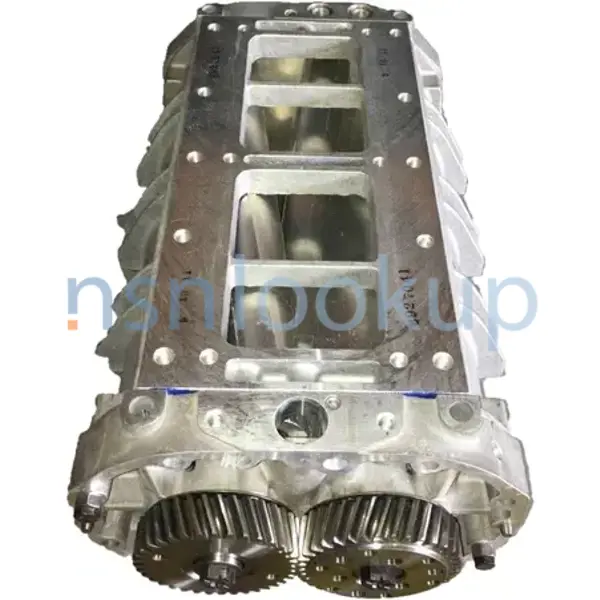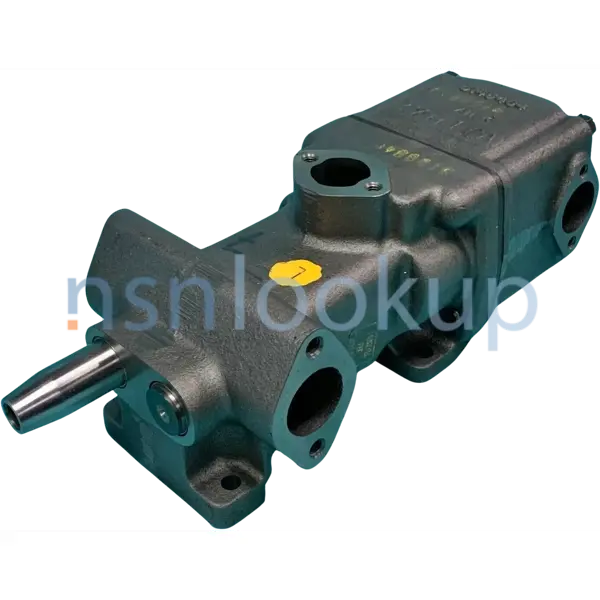8087-7899 Engine
8V92TA Engine for HEMTT
The 8087-7899 engine is a six-cylinder V6 configuration two-stroke turbocharged and aftercooled diesel engine with 92cid (Cubic Inch Displacement) per cylinder, Model 8V92TA. This engine is equipped with DDEC III/IV electronic controls by Detroit Diesel. This 8V92TA engine has a total displacement of 736 cubic inches and can produce up to 445 SAE brake horsepower and 1250 lb/ft torque.
This 8V92TA engine is used in the HEMTT vehicle. The two-stroke diesel has a maximum speed of 2250 RPM and a small, light package compared to its maximum torque rating.
- Engine with Container
- NSN: 2815-01-452-6354 / Part Number: 57K4728
- Engine without Container
- NSN: 2815-01-450-4014 / Part Number: 12472145
- Engine Container
- NSN: 8145-01-375-7046 / Part Number: 0-19095
8V92TA Engine Features
- High Reliability
- Wide Environmental Tolerance
- Ease of Maintenance
- High-Torque for Physical Size
- Multi-Fuel Capable
- Robust Design

Request a Quotation for 8087-7899 Engines
 Turbocharged 2-Cycle Diesel
Turbocharged 2-Cycle Diesel
On two-cycle diesel engines, normal aspiration refers to the engine having "neutral" air intake boost pressure. As 2-Stroke diesel engines do not have intake valves, a positive pressure must be generated to push the intake air into the cylinder which is provided by a supercharger, but the supercharger is not considered a pressure boost device as the induction of air into the cylinder causes a neutral average pressure in the intake system.
In turbocharged engine models, one or more turbochargers are used to provide positive boosted intake pressures to increase combustion efficiency and power output.
- Supercharger NSN: 4140-01-141-1257
- Supercharger Part Number: 5101484

 Speed Limiting Governor
Speed Limiting Governor
8087-7899 engines are equipped with a speed-limiting governor. A speed limiting governor reduces the fuel injected into the cylinders once the desired maximum speed is reached. The linkage from governor to injector contains a hydraulic damper piston to reduce the rate of throttle change and protect against speed hunting. The 8V92TA is well known to have a mode of failure called "run-away". Run Away occurs when the governor mechanism fails or is incorrectly adjusted. The fuel injectors of the 8087-7899 are sprung loaded to maximum fuel. The governor and its linkages must be functional to reduce the fuel to prevent run away where the engine will keep accelerating until the engine fails. The only way to stop run away once it is happening is to shut off the air supply to the engine intake.
 Lubrication System
Lubrication System
The 8087-7899 engine has a rotary oil pump located within a housing on the front of the engine directly driven by the crankshaft. The georotor pump has 1.5" wide pump gears for higher capacity flow and is driven on a spline on the crankshaft. Gerotor pumps use a trochoidal inner rotor and an outer rotor formed by a circle with intersecting circular arcs. A suction tube and screened pickup suck oil from the oil pan. There are two oil pressure regulating valves in the oil pump housing that regulate the engine oil pressure.
- Oil Pump NSN: 4320-01-038-8118
- Oil Pump Part Number: 5198840

 Cold Starting Aid
Cold Starting Aid
The 8087-7899 engine has an air box flame heater system as a cold starting aid. The vehicle operator can operate the heating system remotely from their control station. When operated, a solenoid valve is opened allowing diesel fuel from the vehicle under pressure from the vehicle's electric fuel pumps to be fed to a spray nozzle located in the air box of the engine. An engine mounted electric air pump provides pressurized air to a nozzle in the air box of the engine. An engine mounted spark generator then provides high-voltage pulses to a spark plug adjacent to the fuel and air nozzles in the engine's air box. The fuel-air mixture is ignited repeatedly causing the intake air for the engine to be heated and assisting in cold starts.
